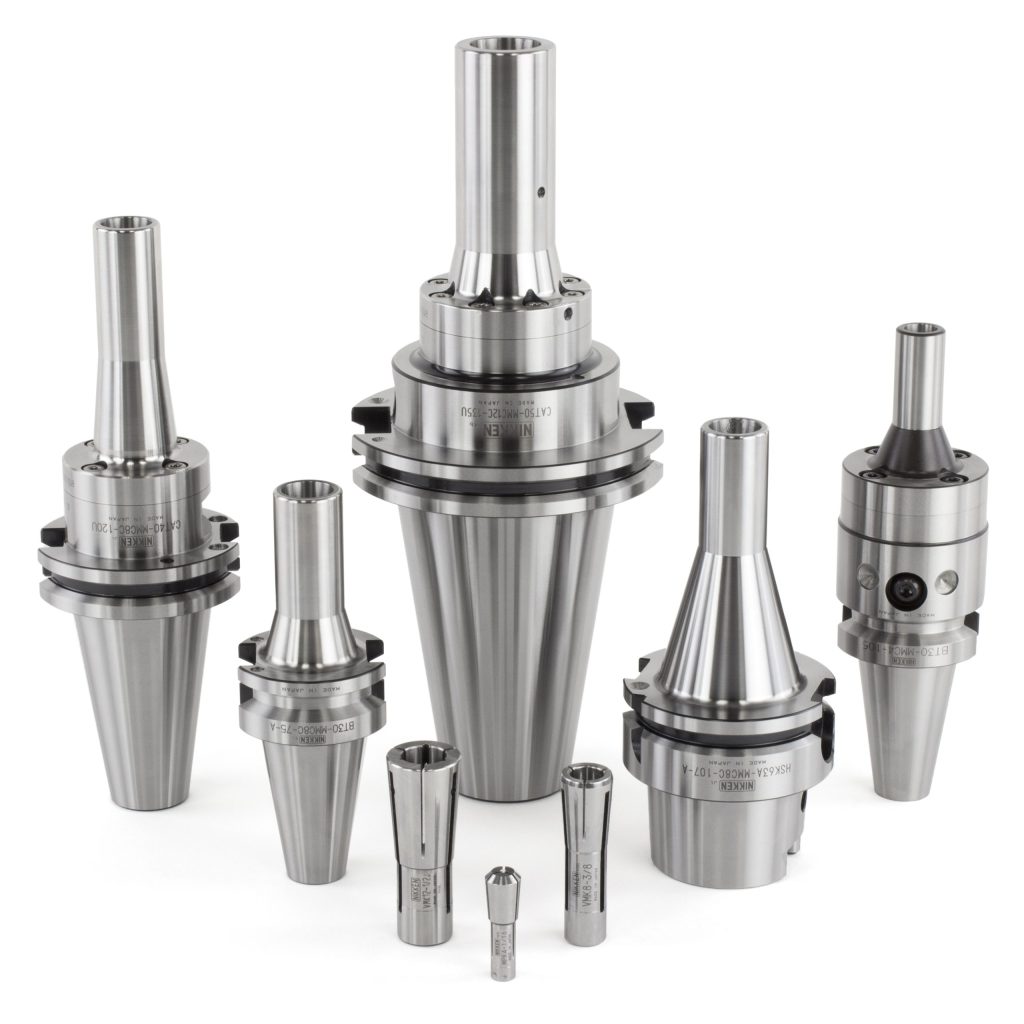MMC Mini-Mini Collet Chuck
MMC Mini-Mini Collet Chuck
The MMC collet chuck is precision ground and pre-balanced to 30,000 RPM at G2.5 with runout accuracy of 3 microns at 4 times the diameter – ensuring accuracy and reliability during high-speed operations.

Lyndex-Nikken, manufacturer and provider of high-performance machine tool accessories, offers the MMC Mini-Mini collet chuck that provides accuracy in small diameter cutting.
For manufacturers that need more clearance and flexibility in machining, the MMC Mini-Mini collet chuck features a slim and compact body for precision machining with small diameter tools (up to 0.500"). This will enable high runout accuracy with superb surface finish and part tolerance. The MMC collet chuck is ideal for high speed machining applications where clearance is needed such as die mold, aerospace, and medical parts. The MMC collet chuck is also an alternative to a shrink fit system.
An easy-to-use draw-in collet clamping mechanism (no collet nut required) results in strong, high-precision gripping from the front nose that can access hard to reach areas. Because a collet system is used, tool changeover is faster and less expensive than a toolholding system that requires a machine in order to insert or extract the cutting tool. The collet system for the MMC also allows for a wider range of sizes while with shrink fit you need a holder for each size of cutting tool.
The MMC collet chuck is precision ground and pre-balanced to 30,000 RPM at G2.5 with runout accuracy of 3 microns at 4 times the diameter – ensuring accuracy and reliability during high-speed operations.
With very few parts to set up, the MMC collet chuck provides quick and accurate assembly. Benefits of the MMC collet chuck include:
- Easy-to-Use Collet System (no collet nut required) – internal draw-in collet clamping/unclamping with just a wrench
- Access Hard to Reach Areas – slim and compact with strong gripping at nose
- Accurate – 3 microns at 4 times the diameter
- Flexible – providing both clearance and accuracy
The MMC collet chuck is also available in Taper Plus which combines taper accuracy with flange rigidity. Additionally, MMC collet chucks have coolant thru capabilities offered in a standard style coolant collet or jet slotted style collet.





